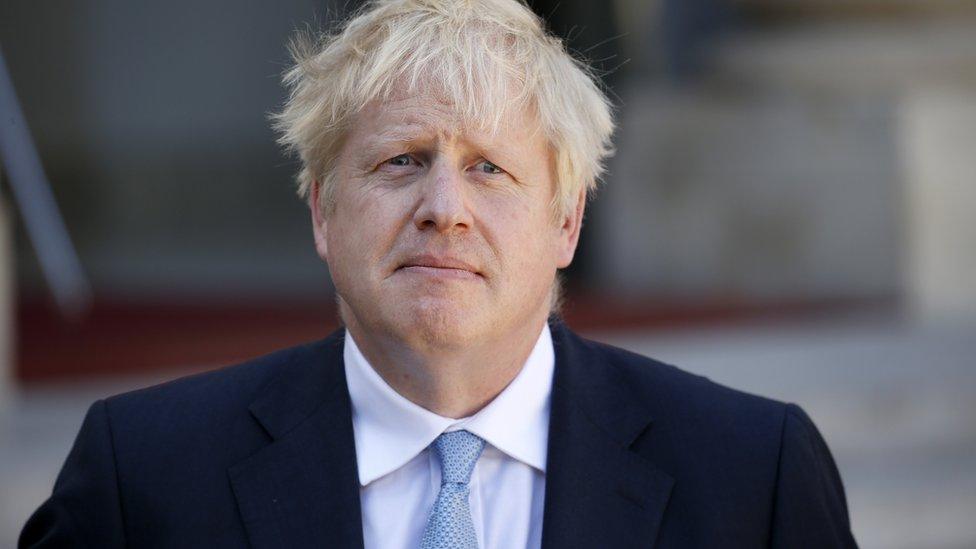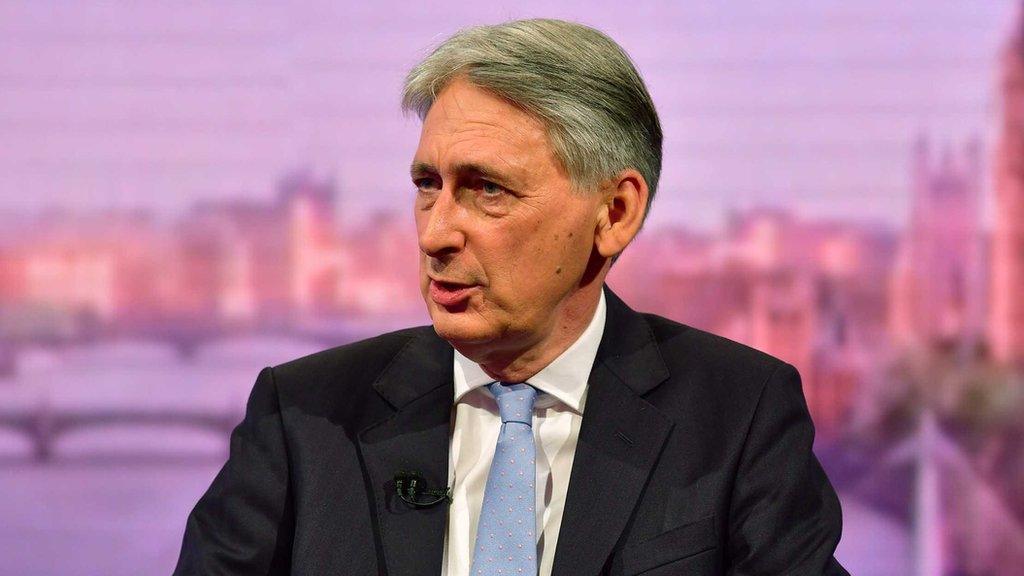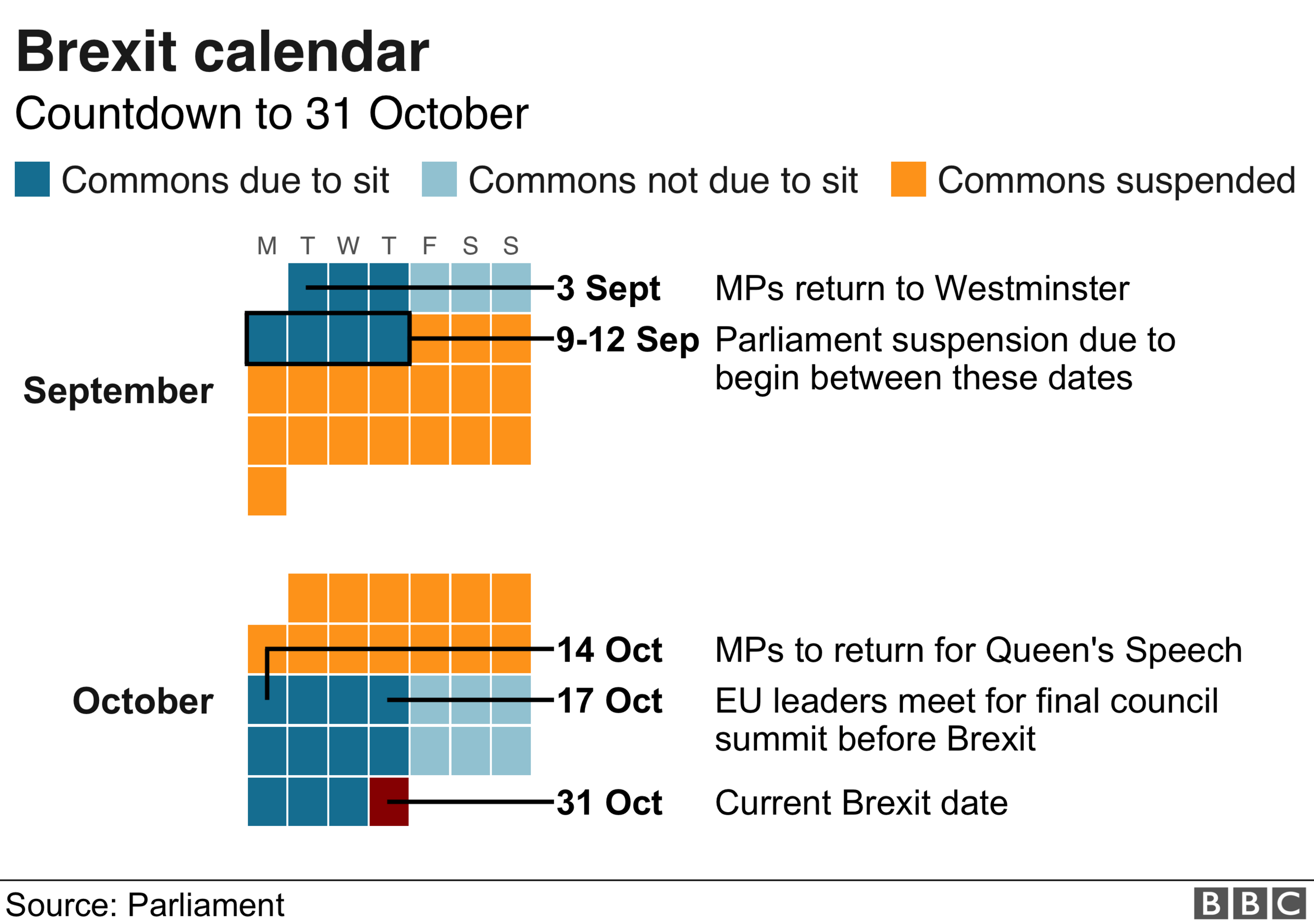Laura Kuenssberg: Why is Johnson planning to deselect Tory rebels?
- Published

Buckle up. This next sentence is one that in normal political times (remember them?) might give any follower of politics palpitations.
Tory MPs who vote against the government in the Commons this week will be chucked out of the party and banned from standing for the Conservatives at the next election.
Senior sources in government are confirming that plan was agreed by the prime minister and his enforcers - the party whips - in the splendour of his country pile, Chequers, on Sunday.
It's not just Westminster gossip - it is actually No 10's plan.
That's remarkable not just because Westminster is a place where rebellions are relatively commonplace, and backbenchers are permitted to express their opinion in such a way with the consequence being a rap on the knuckles, or a cold shoulder in the tea room.
It's remarkable not just because Boris Johnson's government is stuffed full of ministers, including in the cabinet, who defied the party whip under Theresa May's administration, but who stayed on.

Former chancellor Philip Hammond has said it would be "staggeringly hypocritical" for the government to sack Tory MPs who rebel
But it's remarkable, too, because Boris Johnson knows full well there are Tory MPs who are determined to vote against him this week, and if he holds good on that threat he would be giving up the whisker of a majority he has.
That's not a boring detail. Prime ministers can't run the country easily if they don't have a majority in the Commons, let alone at a time when their main policy courts controversy everywhere.
So why make such a threat that if followed through, would be an act of self harm?
First off, Downing Street does not want to lose this week to the rebel alliance whose members will try, from Tuesday, everything they can to outlaw the possibility of no deal.
This threat from No 10 might put the frighteners on a few of them who are tempted to vote against the government.
So it reduces the chance of defeat a little, even though some of those determined to vote against the government are planning not to stand at the next election in any case.


The numbers may be tight, but one source close to the group told me, "We've moved beyond the point where threats will persuade people to abandon their principles". Another senior MP up to their guts in the plans told me if they are deselected, "so be it".
But the nature of the threat is also a sign that No 10 is actively considering whether they will have to call a general election, and soon.
If you are an ambitious prime minister, (step forward Boris Johnson), and you don't have a majority, you need to try to find one, and fast.
An early general election?
And he was elected by the Tory party with a promise of sticking to his Brexit deadline, come hell or high water.
If MPs make that impossible this week, he may well choose instead to press the button on another campaign, and go to the country.
I understand calling an election, maybe even this week, is one of the options under consideration.
But his team is well aware that chunks of the electorate might be pretty cross about going to the polls again.
So cranking up the pressure on Tory rebels at the start of this crucial week could create a convenient group of bogeymen who could be chucked out of the party, and take the blame.
Don't be surprised if by the end of the day No 10 has found another way of upping the pressure still further.
It is far from inevitable, but it's not impossible that, within a matter of days, we could all be asked to go to the polls again.
A prime minister ready to give up his tiny working majority sounds like a prime minister ready to call an election, if needs be.
- Published29 August 2019
